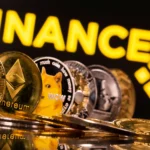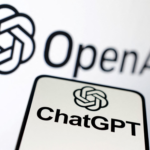Meme tokens are cryptocurrencies created as humorous or playful projects, often based on popular internet memes or jokes. Despite their entertaining origins, some meme tokens can gain widespread popularity and achieve significant market capitalization, especially through active communities and social media support.
Key Characteristics of Meme Tokens:
- Entertainment-Based:
- Meme tokens are typically created based on internet memes, jokes, or cultural phenomena. They often lack specific technological value or goals, unlike more serious cryptocurrency projects.
- Example: Dogecoin (DOGE) — a meme token created as a joke in 2013, based on the popular meme featuring a Shiba Inu dog.
- Active Community:
- Meme tokens often attract large followings due to their active and passionate communities, which promote and spread information about the project on social media. This can lead to a rapid price increase driven by the “fun” aspect and speculation.
- Example: Shiba Inu (SHIB) — a token created as a “Dogecoin killer,” which quickly gained popularity within the crypto community.
- Speculation and Volatility:
- Meme tokens are highly volatile, and their prices can fluctuate dramatically based on the popularity of the memes or specific events. They are often subject to speculative buying, which can lead to large price swings over short periods.
- Example: Dogecoin has been supported by figures like Elon Musk, leading to significant price surges.
- Limited Functionality:
- Unlike cryptocurrencies created to solve real-world problems (such as Ethereum for smart contracts), meme tokens rarely have technical or economic value. They may be used for fun, speculation, or generating hype, but they are rarely intended to address complex issues.
Examples of Popular Meme Tokens:
- Dogecoin (DOGE):
- One of the first and most well-known meme tokens, created in 2013. It was based on the “Doge” meme featuring a Shiba Inu dog. Despite its humorous origin, Dogecoin became a popular asset for microtransactions and charity efforts within the cryptocurrency community.
- Shiba Inu (SHIB):
- Created as a “Dogecoin killer,” SHIB gained popularity thanks to its supportive community. Like Dogecoin, it lacks significant technological innovation but has attracted attention from traders and speculators.
- PepeCoin (PEPE):
- Based on the popular internet meme Pepe the Frog, this token is another example of a meme token used within the meme’s fan community and often participates in playful or speculative trading activities.
- Akita Inu (AKITA):
- Another meme token created based on dog memes, launched as a competitor to SHIB and DOGE. It gained attention due to its similarity to more well-known meme tokens and speculation about its growth.
Why Do People Buy Meme Tokens?
- Investment and Speculation:
- Despite their entertainment nature, meme tokens can yield significant profits during rapid surges in popularity. Traders often buy these tokens in the hope of making quick profits.
- Example: Some early investors in Dogecoin made substantial gains during its meteoric rise due to social media hype.
- Community and Support:
- Many buy meme tokens because they enjoy the idea behind them or because they support the active and friendly community. This is more about social and cultural support than financial strategy.
- Fun Factor:
- People may buy meme tokens for entertainment purposes. They enjoy participating in joke-based projects and using cryptocurrencies related to their favorite memes.
Risks of Meme Tokens:
- High Volatility:
- Meme tokens are extremely volatile, and their price can drop sharply after speculative surges. This makes them risky for long-term investment.
- Lack of Real Value:
- Unlike tokens with practical functions, meme tokens rarely have fundamental value. Their price is based on the meme’s popularity, rather than on actual technology or utility.
- Flash Crashes:
- Meme tokens can experience “flash crashes,” where their price suddenly drops due to a sudden decline in interest or hype from social media. Investors can lose significant amounts during such price swings.
Conclusion:
Meme tokens are cryptocurrencies based on memes and internet jokes, often attracting attention through their active community and fun ideas. While they can become objects of speculation and potentially yield significant profits, they also carry high risks due to volatility and lack of real value.













 Cryptol – your source for the latest news on cryptocurrencies, information technology, and decentralized solutions. Stay informed about the latest trends in the digital world.
Cryptol – your source for the latest news on cryptocurrencies, information technology, and decentralized solutions. Stay informed about the latest trends in the digital world.